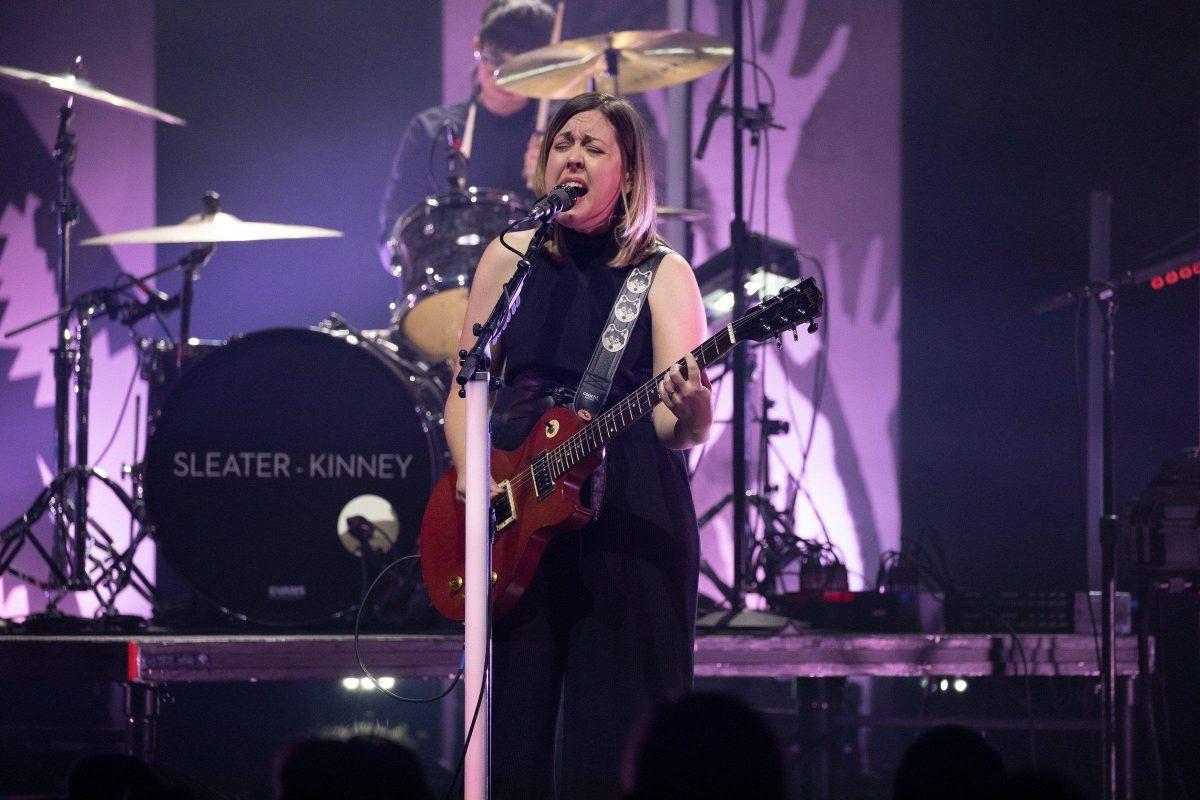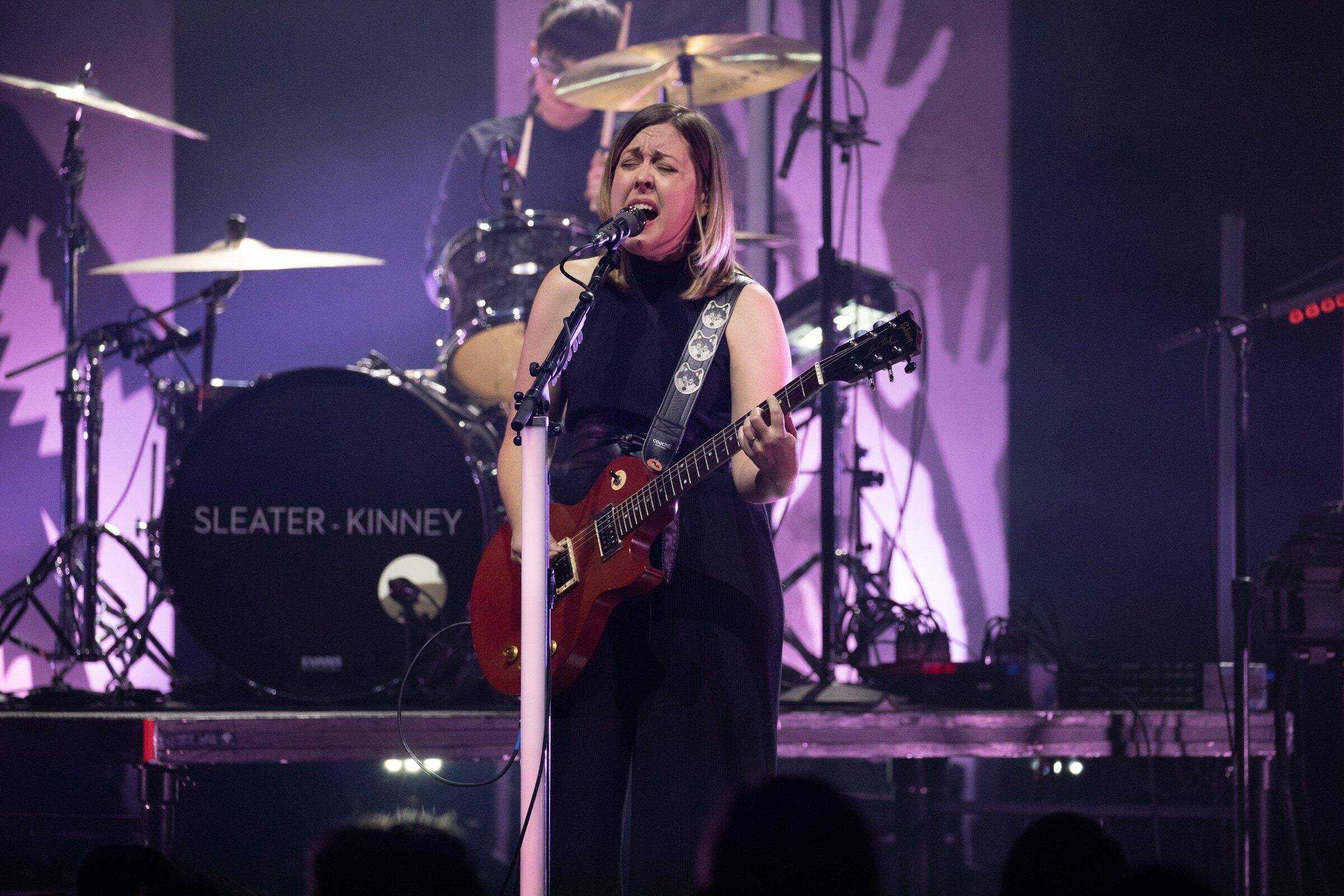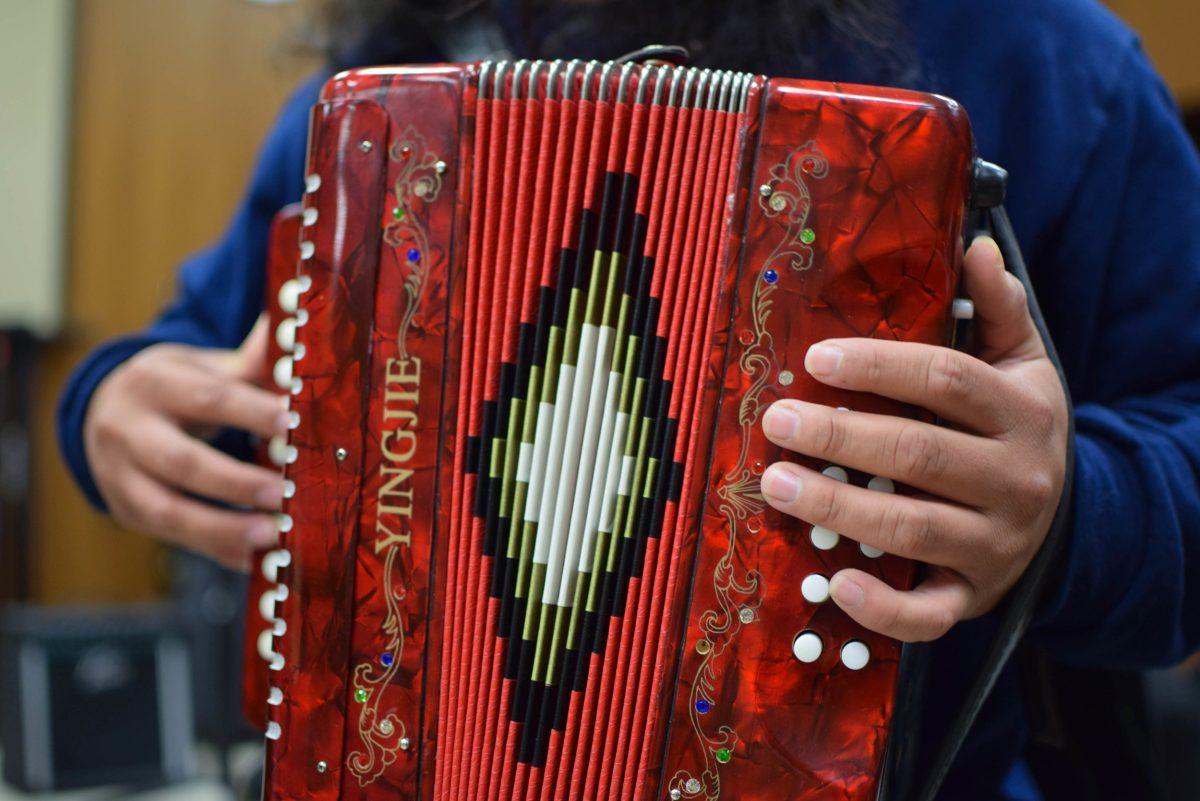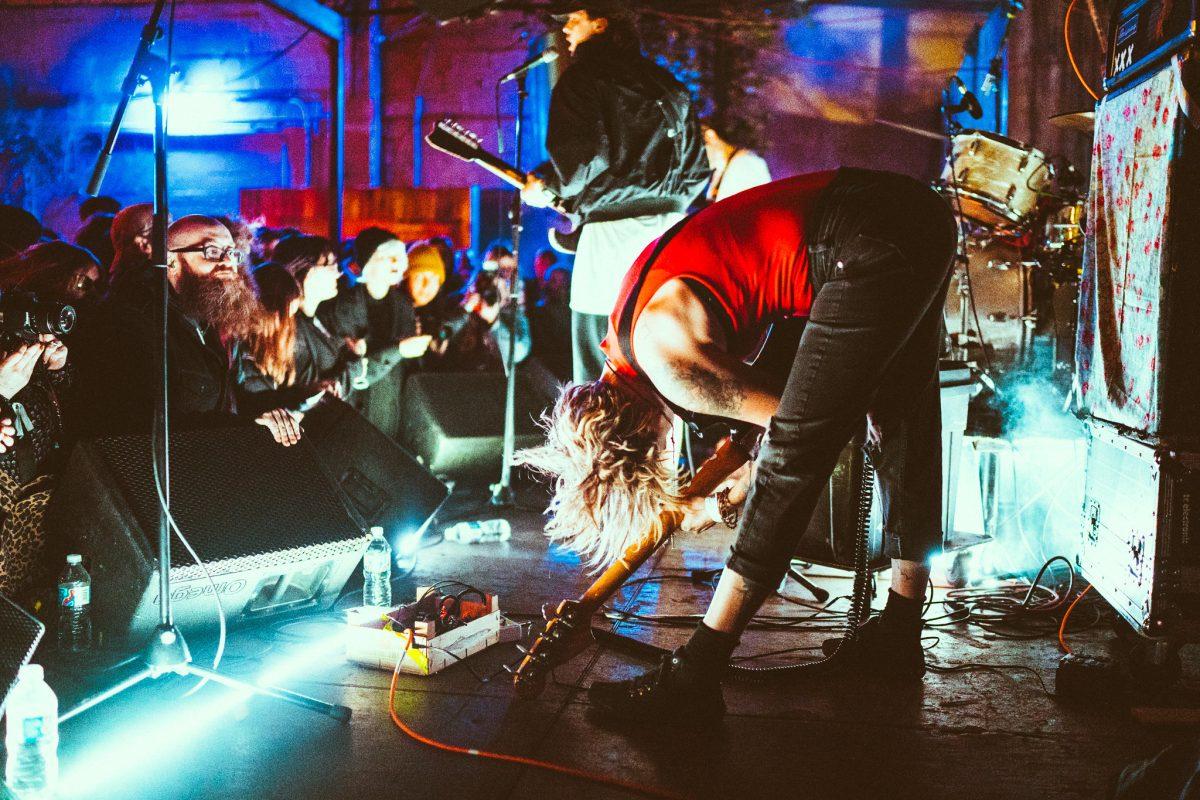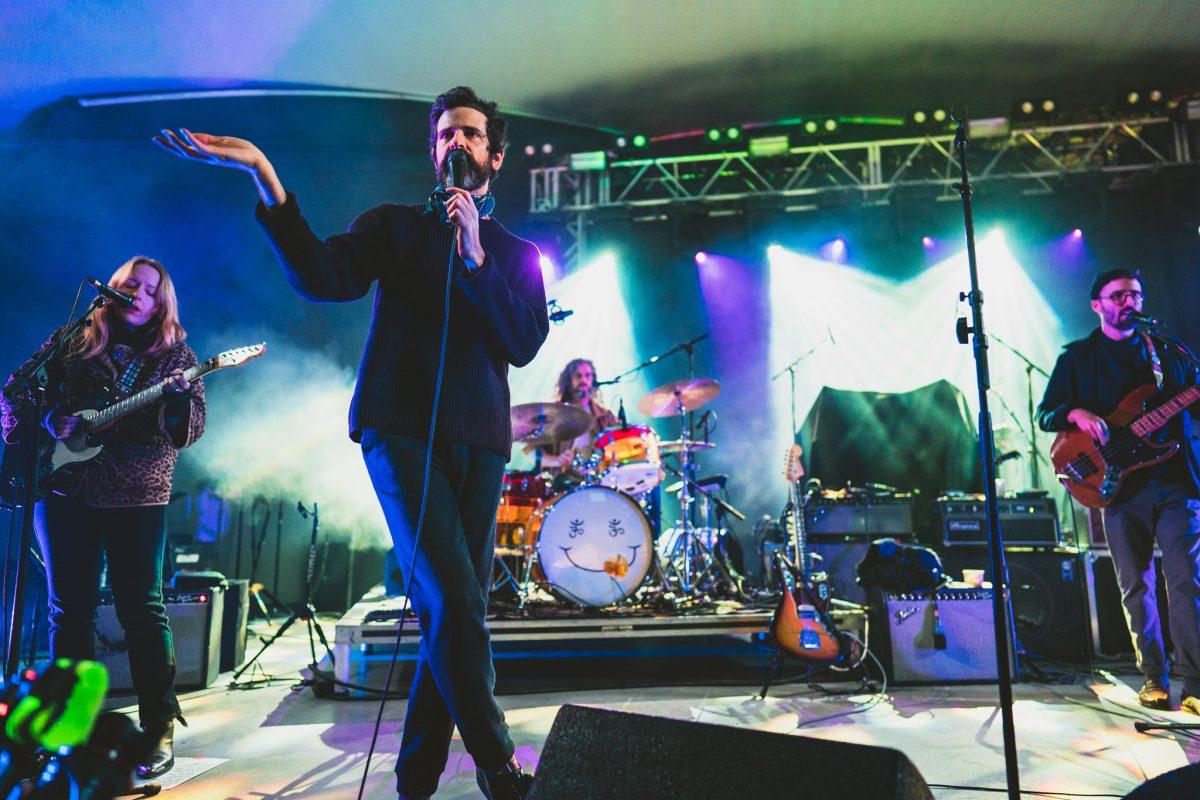Amid lineup changes and concerns over their changed sound, the beloved Washington band played the Moody Theater with the same energy and love they’ve been delivering for a quarter century.
Story by Carys Anderson
Photo courtesy of Austin360, Scott Moore
2019’s been shaky for the band; they started the year with news of a new album, to the excitement of the generations of fans they’ve secured across their 25-year career. But before The Center Won’t Hold even hit shelves (Spotify), longtime drummer Janet Weiss left the band because they were “heading in a new direction.” She wasn’t wrong; the punk band known for their angular guitar weavings and thunderous drums released an album slick with synths, Weiss’ drums mixed low. Sleater-Kinney is a notable power trio; how would the band fare with one third missing, especially when that third is one of the most revered players of her instrument?
Turns out, they fared just fine. Carrie Brownstein and Corin Tucker electrified the Moody Theater Saturday with palpable joy and energy.
If the sound of The Center Won’t Hold seemed jarring on record, its songs gel well with the band’s back catalogue in a live setting. Set openers “The Center Won’t Hold” and “Hurry on Home” were already bangers, but sleepier tracks like “The Future Is Here” became dance-y in the sped up, higher key played Saturday. Brownstein’s soulful playing mirrored Tucker’s vocal melody, one of many instances where the band teased out their characteristic guitar sound in new tracks from which it was originally missing.
Brownstein is one of the few women ever included on best guitarists lists, and her spot is well deserved. While Tucker tends to anchor the band with her low, thumping notes (an underrated role), and wail with her unmistakable voice, Brownstein wails with her guitar, playing the high notes, flourishes and meandering lines that separate Sleater-Kinney from your run-of-the-mill punk band. And she does it with ease. Seemingly improvising her fluid riffing in “No Cities to Love” and soloing to applause in the Zeppelin-esque “What’s Mine Is Yours,” she takes the posturing that comes with the hyper-masculine “guitar god” title seriously. Bouncing like a pogo stick, high kicking, Townshend windmilling, and shuffling her boots across the stage, she’s an absolutely alluring live figure.
Sleater-Kinney’s always been a fiercely feminist band, from their Riot Grrrl roots to this ability to flip masculine Rawk energy on its head. It seems their ideals spill over to their touring company as well; opener KAINA warmed the crowd with her multilingual R&B about, she said, getting in your feels and being a first-generation Latina in the “fucked up” times we’re currently living in. Together, the two artists provided different perspectives on our dark days to a well-rounded musical backdrop.
The year started with album promotion and plateaued with a surprising lineup change and fan vitriol to match. But on this tour, they’re ending the year by proving what skeptics should’ve known all along: Sleater-Kinney is about Brownstein and Tucker. To see the band live is to see their relationship in real time. Positioned not far from each other center stage — not on far ends as one might expect — the guitarists often faced each other, rather than out to the crowd, grinning giddily and jumping in time to the music. Brownstein approached Tucker and lean on her as they played.
It was Tucker’s birthday, and Brownstein noted how grateful she felt to have known her collaborator since she was 18, and how Tucker’s voice still makes her emotional. It was a sweet moment, especially in the aftermath of the band’s fracturing. But Brownstein showed this sentiment throughout the night, without words: looking somber during Tucker’s mournful Kavanaugh-hearings response “Broken,” and standing back, mouthing along to her early ballad “Good Things.”
Their love is infectious. It’s no wonder fans at the barrier made friends before the show by swapping their hometown cities, from which they flew to Austin to catch the band again; Sleater-Kinney almost inevitably wins devotion.































